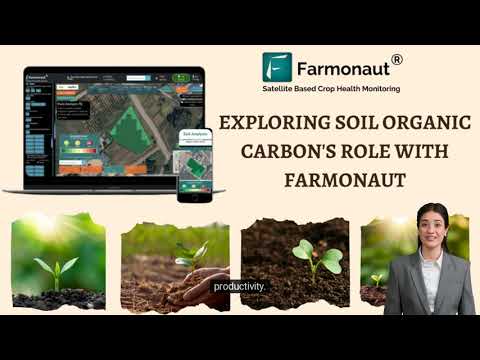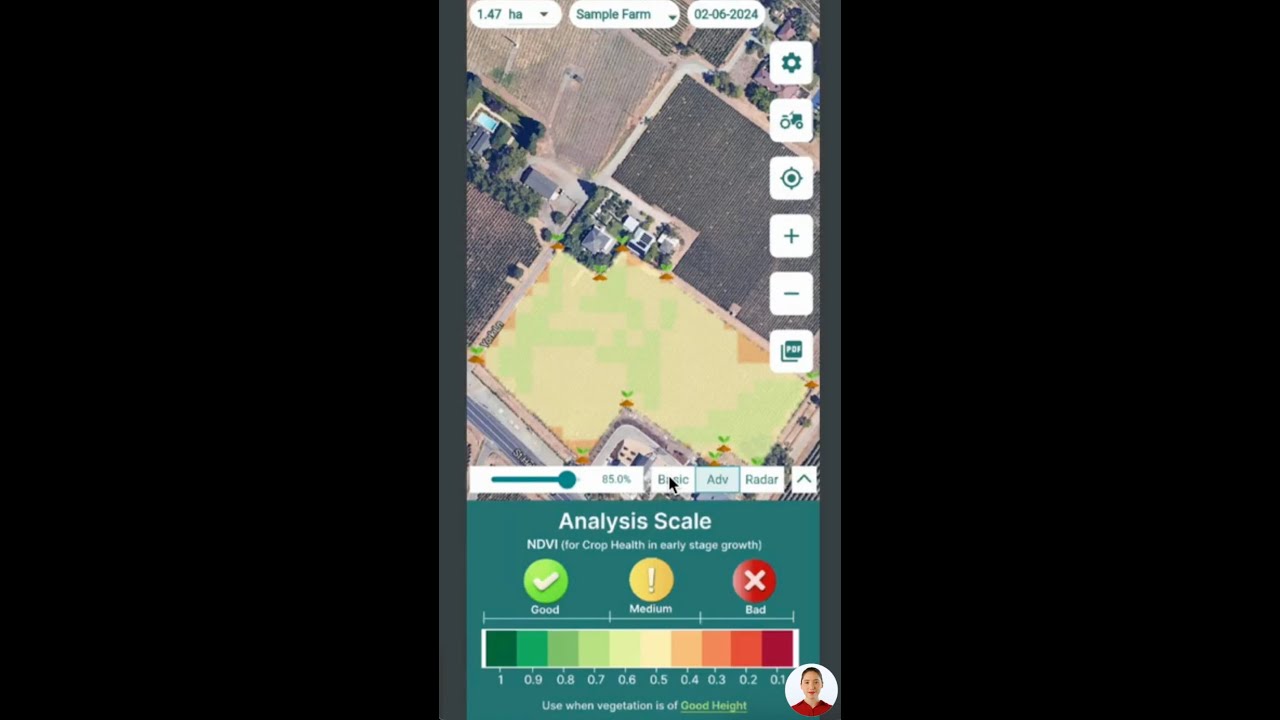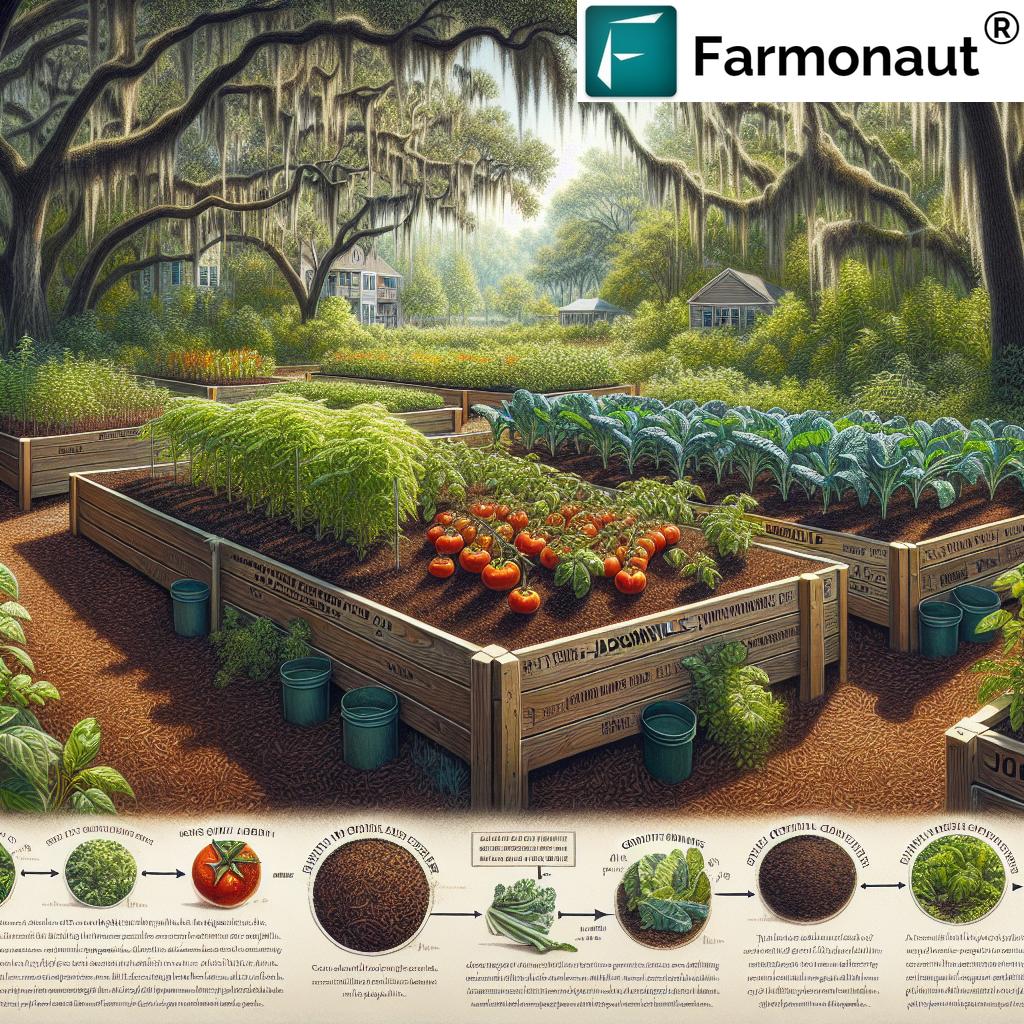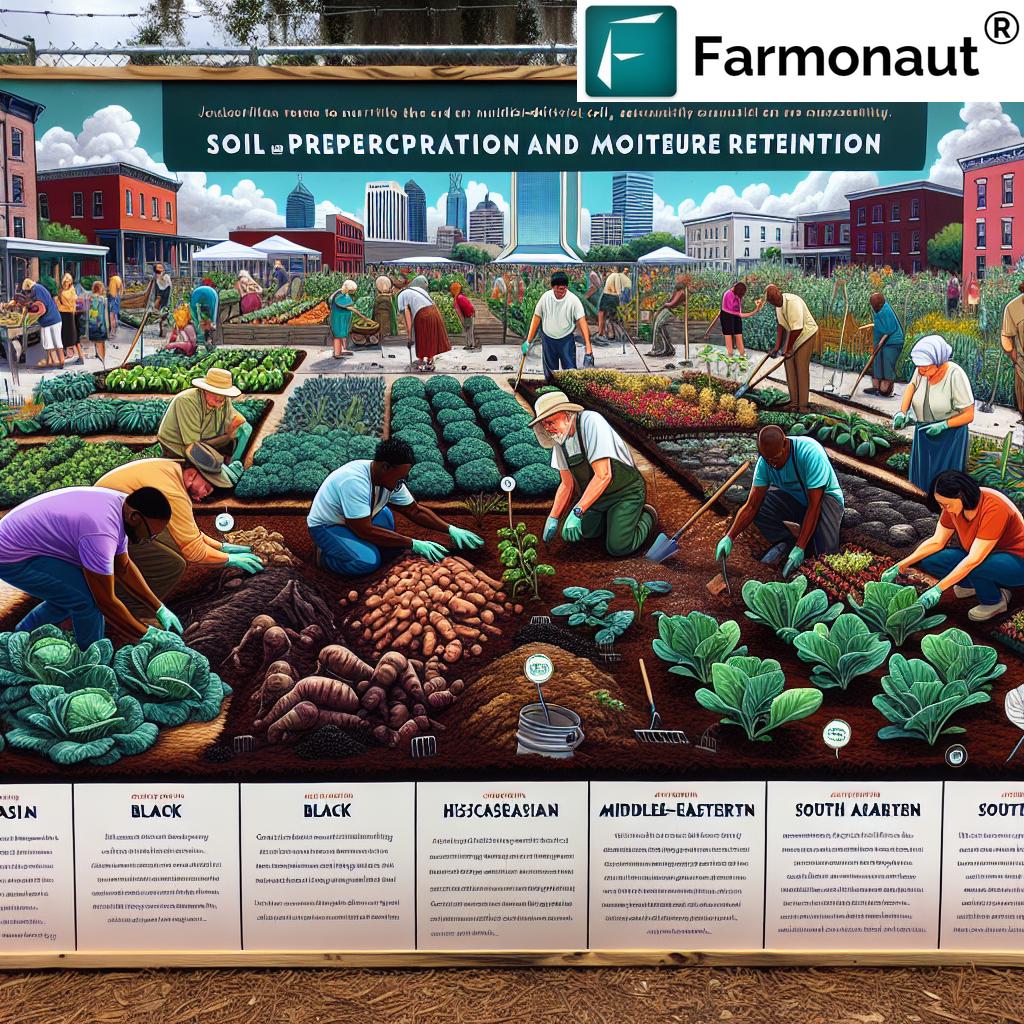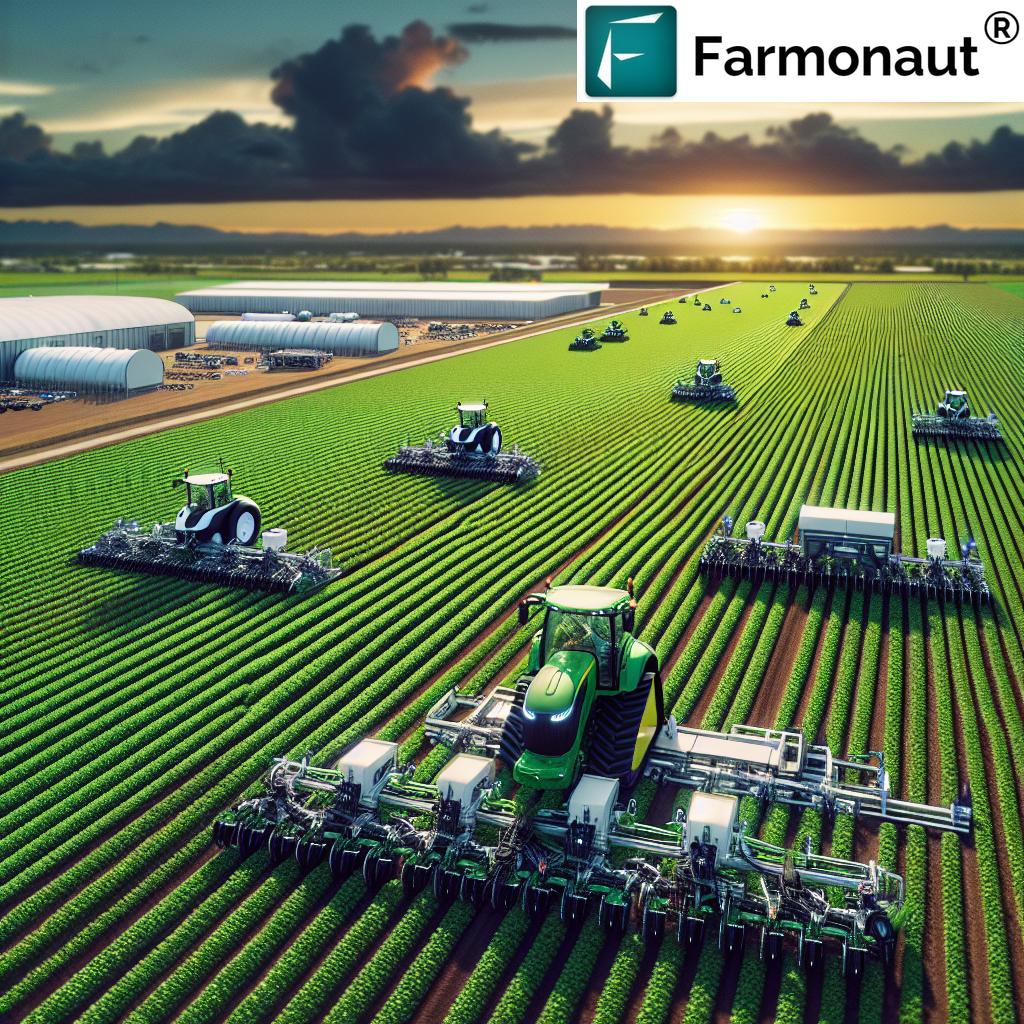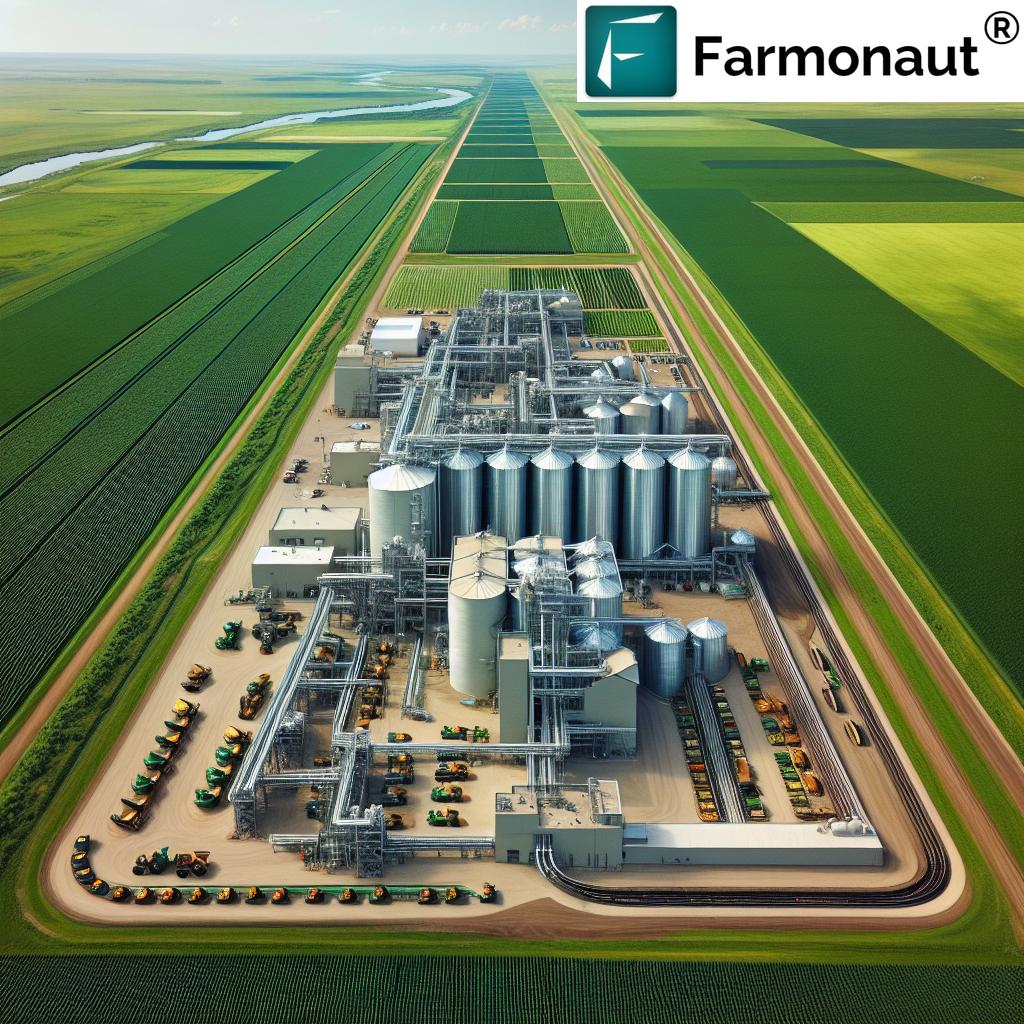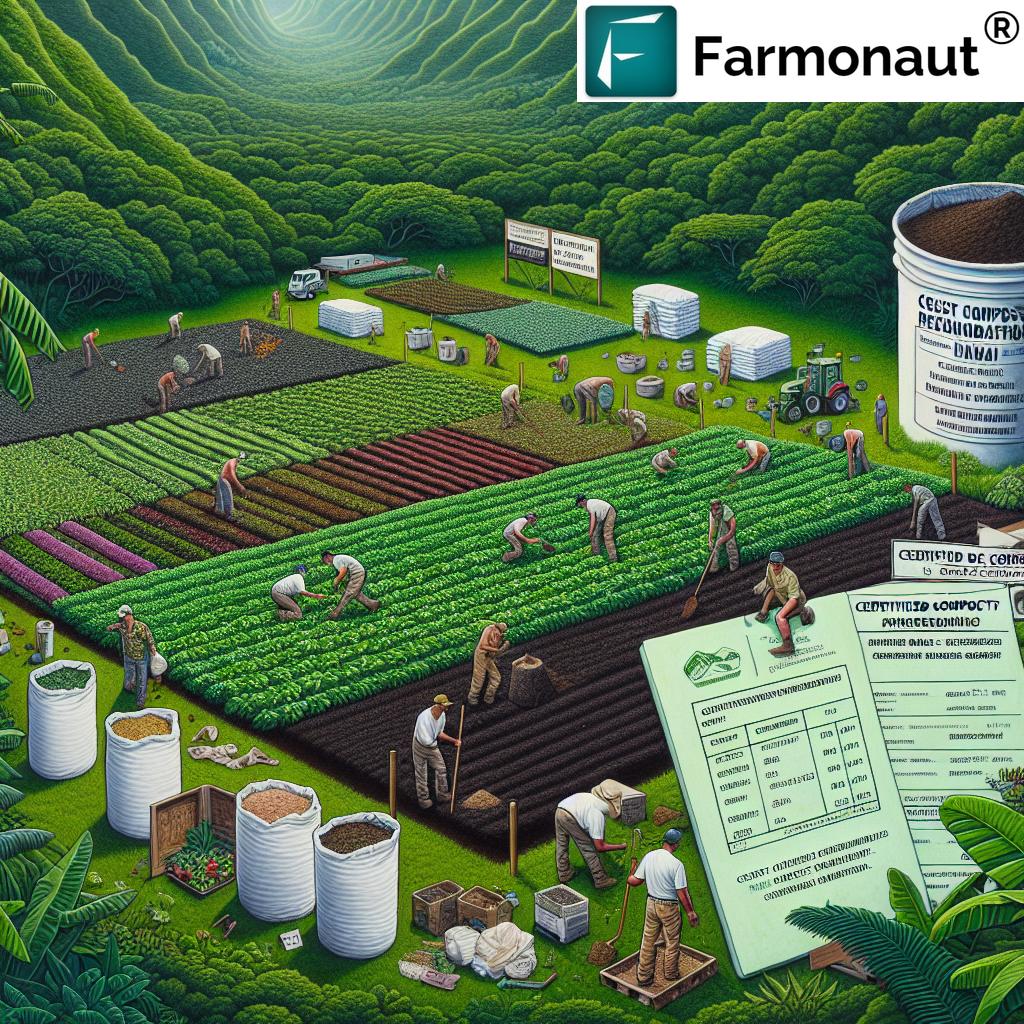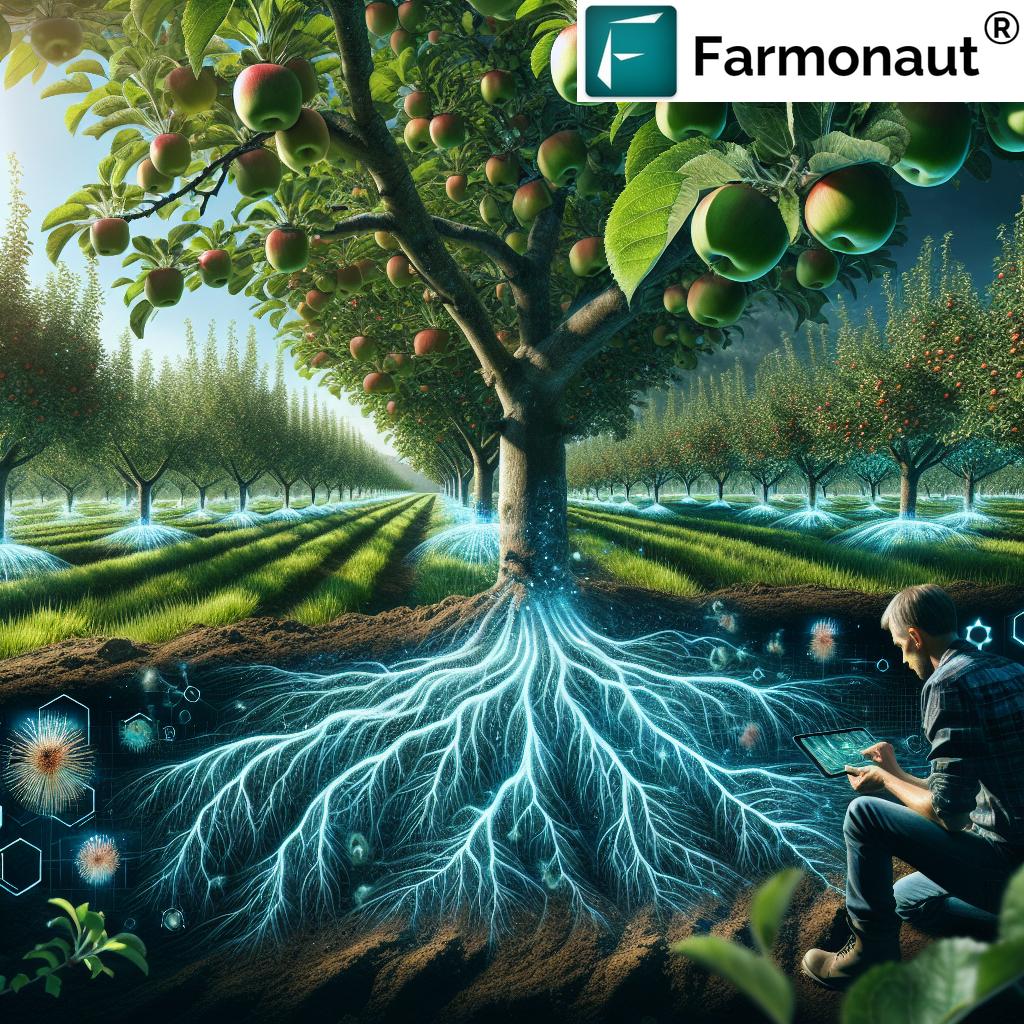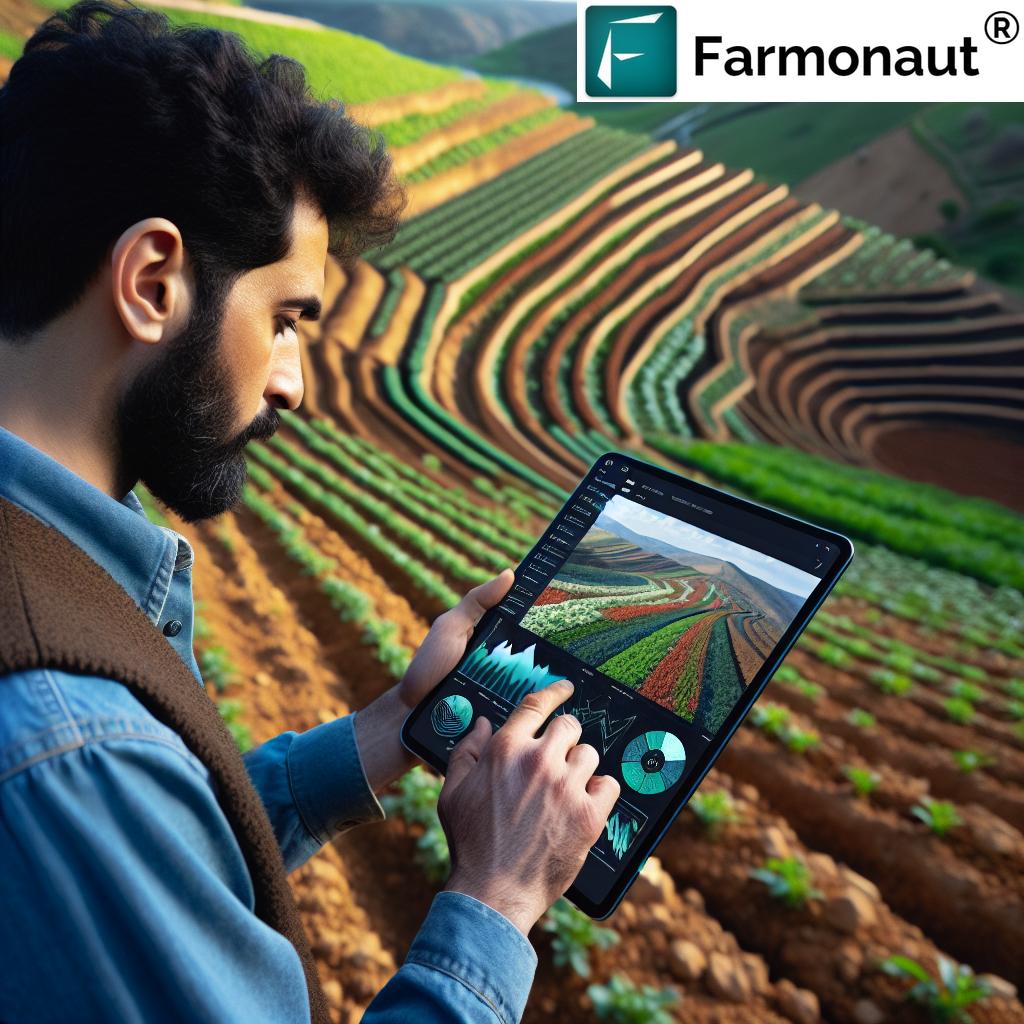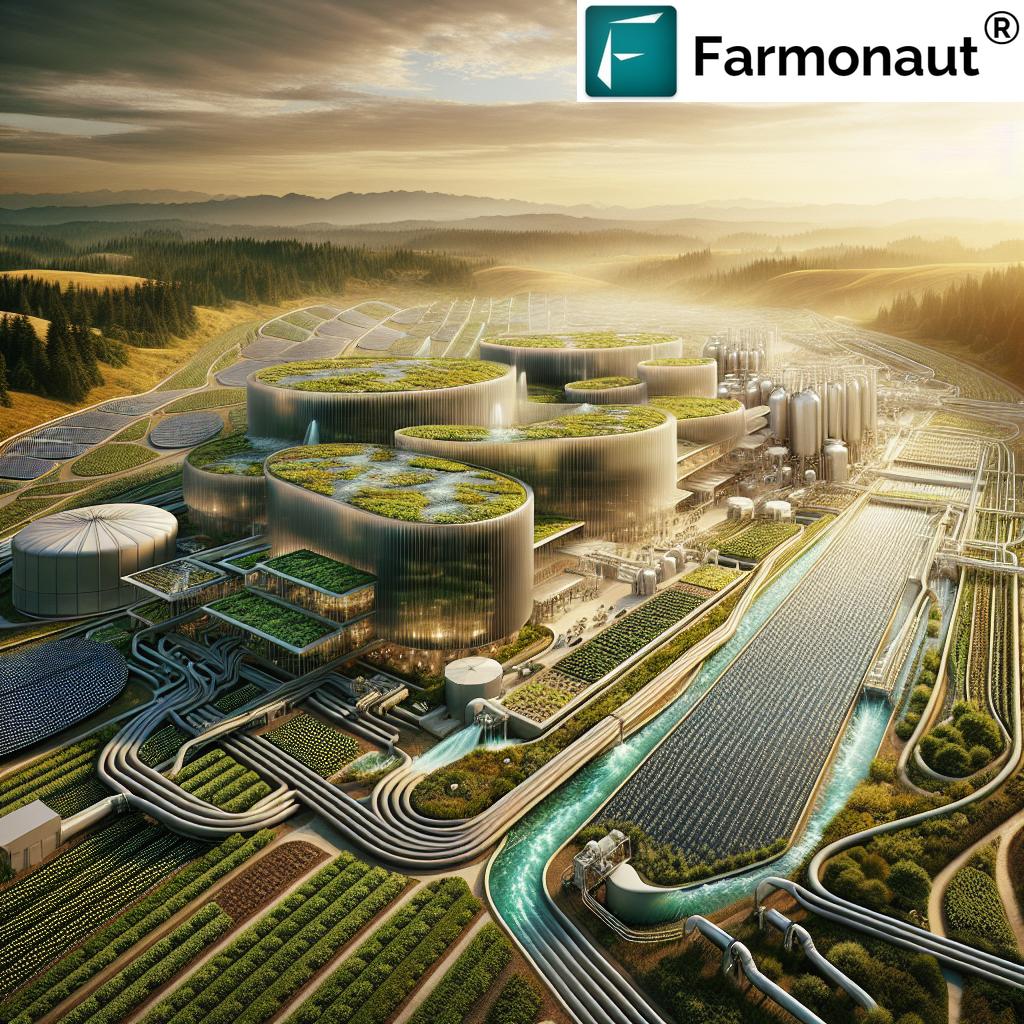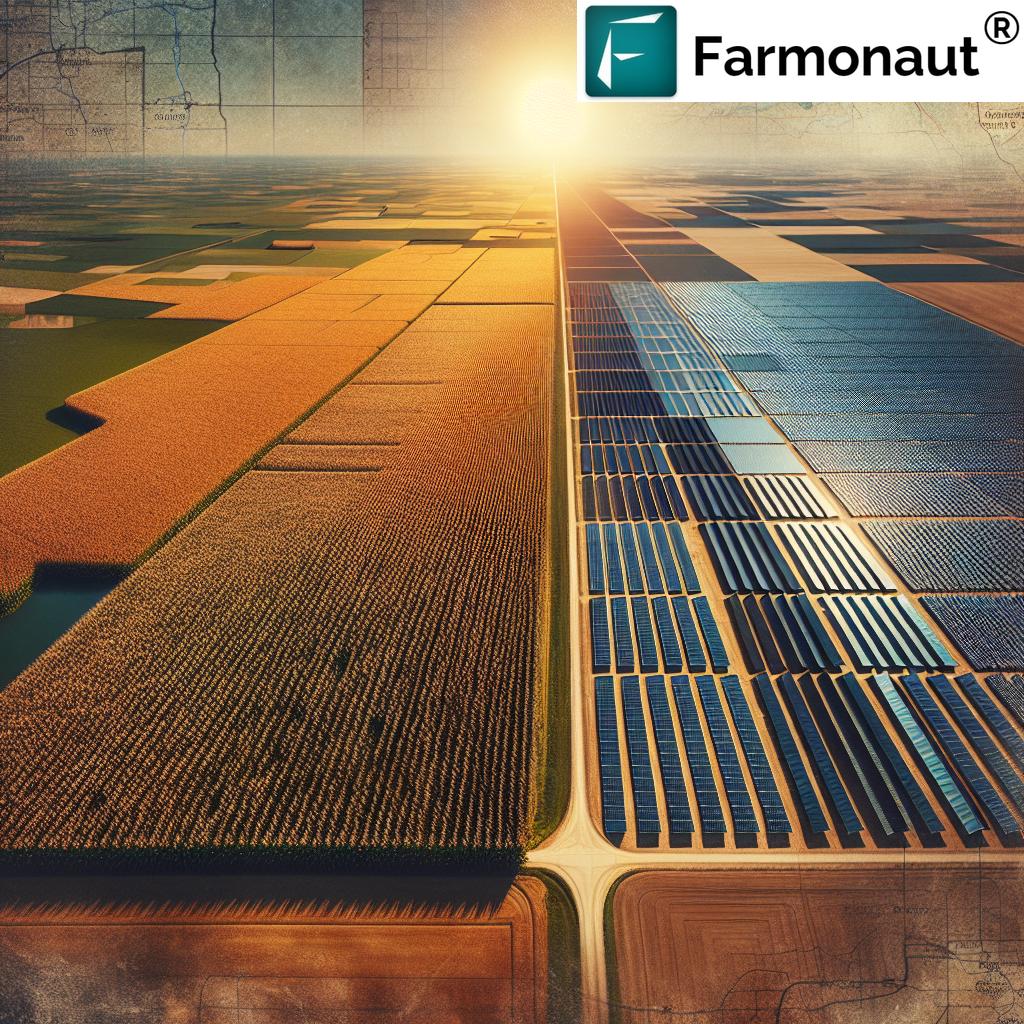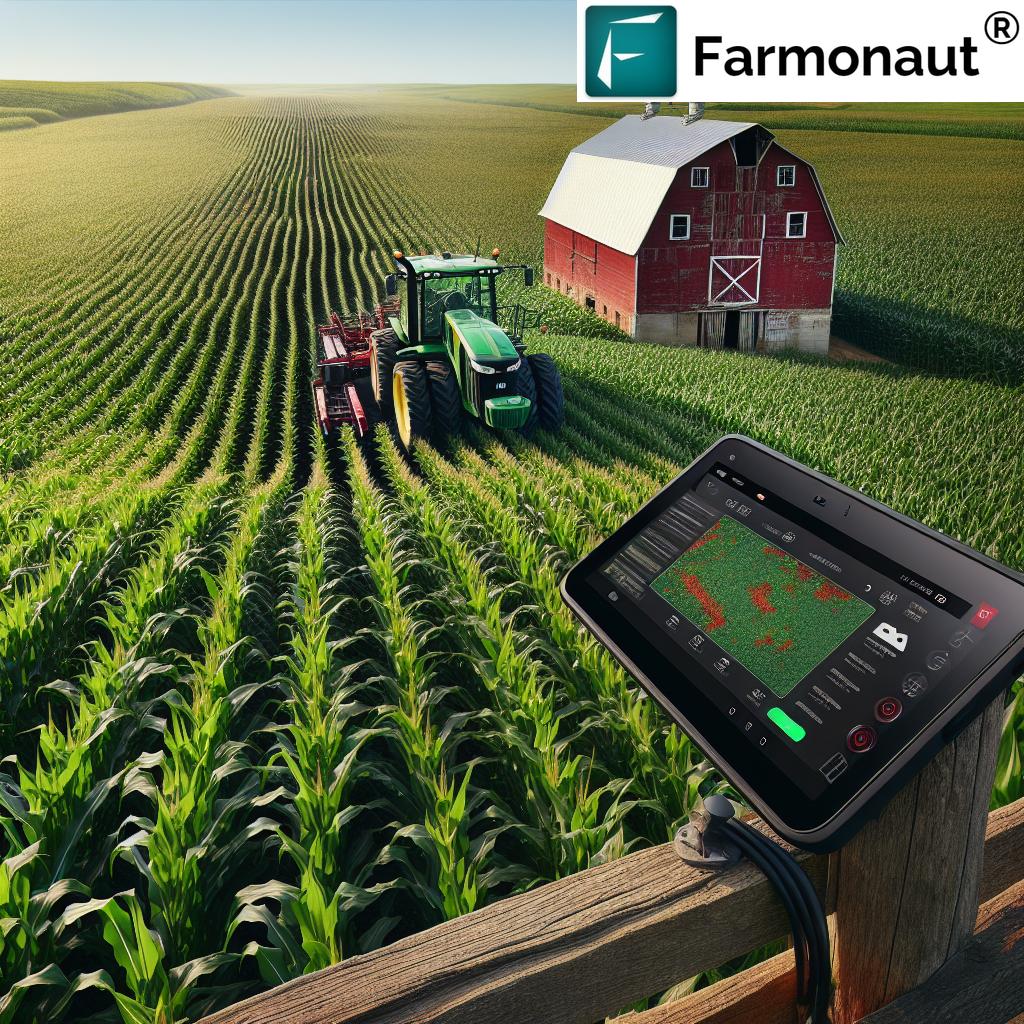Gardeners Jacksonville: Top 10 Tips for Thriving Gardens
Table of Contents
- Introduction
- Understanding Jacksonville’s Climate & Soil
- Spring Planting Guide Jacksonville: Best Plant Selection
- Optimal Watering Practices for Jacksonville Gardens
- Soil Improvement: Boosting Fertility & Moisture Retention
- Sustainable Gardening Practices in Jacksonville
- Jacksonville Community Gardens & Resources
- Educational Workshops and Learning Opportunities
- Local Horticultural Attractions & Experiences
- Jacksonville Gardening Tips: The Top 10
- Jacksonville Gardening Tips: Best Plants & Practices by Season
- Farmonaut & Precision Agriculture: Supporting Jacksonville Gardeners
- Frequently Asked Questions
- Conclusion
“Jacksonville gardeners can extend their growing season by up to 3 months using climate-adapted plant varieties.”
Introduction
Gardening in Jacksonville, Florida, offers an exciting blend of unique challenges and abundant rewards. The city’s subtropical climate is characterized by long, hot summers, mild winters, and sandy soils that can both help and hinder growth. For gardeners, understanding the local region—its weather patterns, natural plant life, and community resources—is key for a lush, thriving garden. Whether you are a seasoned horticulturist or a beginner fostering your first greens, this comprehensive guide brings together the best Jacksonville gardening tips, sustainable practices, and expert insights to empower your gardening journey.
From selecting the optimal plants to understanding essential soil amendments, watering methods, and educational opportunities within the community, our guide will help you enjoy abundant produce and beautiful landscapes all year round.
Understanding Jacksonville’s Climate & Soil
Jacksonville’s climate is distinctly subtropical, featuring hot, humid summers (June–September) with average highs around 90°F and mild winters (December–February), where lows rarely dip below 40°F and average temperatures hover near 60°F. This wide temperature range supports a remarkable variety of plants and enables year-round gardening.
Sandy soils dominate the Jacksonville region. While the rapid drainage can benefit root crops and prevent waterlogging in tropical storms, it also means the soils often lack vital nutrients and tend to dry quickly, challenging moisture retention and fertility.
- Key Soil Characteristics:
- Drains rapidly, especially in summer
- Often slightly acidic (which many top-performing plants prefer!)
- May lack organic matter and essential nutrients
To promote healthy roots and overall plant life, it’s recommended to improve your soil with generous amounts of organic matter: compost, well-rotted manure, or leaf mulch. These enrich the soil, boost fertility, and help lock in moisture, all of which are crucial for successful gardening in Jacksonville.
“Over 60% of Jacksonville’s top-performing garden plants thrive best in slightly acidic, sandy soils.”
Spring Planting Guide Jacksonville: Best Plant Selection
Selecting the right plants is the cornerstone of successful gardening in Jacksonville. With proper timing and choosing varieties suited to the local climate and soils, your garden can thrive every season.
Jacksonville Gardening Tips by Season
-
Spring (February–April):
- Vegetables: Tomatoes, peppers, squash, cucumbers
- Herbs: Basil, parsley, cilantro
- Start planting when soil temps rise above 60°F
-
Summer (May–August):
- Heat-loving crops: Okra, sweet potatoes, eggplant, southern peas
- Choose varieties labeled for ‘southern’ or ‘heat-tolerant’
-
Fall (September–November):
- Delicious greens: Kale, lettuce, collards, Swiss chard
- Root vegetables: Carrots, radishes, turnips
- Cool-season brassicas: Broccoli, cabbage
-
Winter (December–January):
- Cold-hardy greens: Mustard, spinach
- Onions, garlic, some herbs
Tip: Use the spring planting guide jacksonville and seed starting calendars from the UF/IFAS Extension to maximize planting windows and ensure timely harvests.
Best Plants for Jacksonville’s Climate
- Tomatoes: Heirloom, cherry, and hybrid types selected for disease resistance
- Kale, Lettuce, and Collards: Grow exceptionally well in cool fall/winter months
- Root vegetables: Carrots and radishes tolerate sandy, loose soils
- Okra and eggplant: Top performers in summer’s high heat
- Herbs: Rosemary, oregano, and basil thrive with little maintenance
Optimal Watering Practices for Jacksonville Gardens
Watering effectively is essential for managing moisture retention and supporting resilient plants during Jacksonville’s long, hot summers. Here are proven, climate-appropriate watering practices:
- Time of Day: Water early in the morning to maximize soil absorption and minimize evaporation losses.
- Deep and Infrequent: Apply a thorough soaking once or twice a week, encouraging deep root growth and drought resilience.
- Drip Irrigation: Install drip systems or soaker hoses to target water at the root zone and reduce disease from wetted foliage.
- Mulch: Mulch around the base of plants with organic materials (straw, pine needles, bark) to keep soil moist and root zones cool.
(Pro tip: Mulch also suppresses weeds and adds organic matter over time!)
During summer droughts, monitor rainfall and supplement as needed. Overwatering is a risk in poorly drained spots, but sandy soils in Jacksonville rarely hold water long enough for roots to suffer, so check soil moisture often.
Utilize precision resource management tools and satellite-based soil moisture monitoring (like those offered by Farmonaut) to optimize water usage and support sustainable gardening practices.
Soil Improvement: Boosting Fertility & Moisture Retention
Successfully gardening in Jacksonville depends on maintaining a healthy soil environment. While sandy soils are excellent for drainage, they tend to lack both nutrients and organic matter, so regular amendment is vital:
-
Add Organic Matter:
- Work in rich compost (homemade or purchased) and manure before each planting
- Mulch existing beds with shredded leaves or straw
-
Test and Balance Soil pH:
- Most vegetables, especially lettuce, carrots, and greens, prefer slightly acidic soil (pH 6.0–6.8)
- Use inexpensive home test kits or send samples to a local Duval County Extension office for analysis
-
Fertilize Smartly:
- Apply slow-release, organic fertilizers (such as blood meal, fish emulsion) for steady growth
- Avoid harsh synthetic fertilizers that can leach quickly from sandy soil
-
Crop Rotation:
- Alternate root vegetables (carrots, radishes), legumes (beans, peas), and heavy feeders (tomatoes, squash) seasonally to maintain balanced soil nutrition and suppress diseases
Reducing tillage, incorporating cover crops, and boosting soil biodiversity all support organic gardening jacksonville efforts, and help sequester carbon in your garden soil.
Sustainable Gardening Practices in Jacksonville
As environmental stewards, Jacksonville gardeners should consider sustainable gardening practices that benefit both the garden and the community at large:
-
Xeriscaping:
- Design with drought-tolerant plants (Florida native grasses, ornamental sages, rosemary)
- Reduces watering needs and is ideal for busy gardeners or challenging climate spells
-
Edible Landscaping:
- Blend herbs, tomatoes, kale, and other vegetables into front yards or walkway beds for food and beauty
- Choose colorful leafy greens and perennial herbs for year-round texture and harvest
-
Mulching & Composting:
- Compost kitchen waste and garden trimmings to create nutrient-rich soil amendments
- Layer beds with mulch to suppress weeds, conserve moisture, and feed the soil
-
Rainwater Harvesting:
- Install rain barrels to capture and reuse stormwater, reducing reliance on municipal supplies
-
Integrated Pest Management:
- Encourage beneficial insects (ladybugs, lacewings) and plant pollinator-friendly flowers
- Use organic pesticides only when necessary to minimize harm to the ecosystem
For large plots or urban farms, advanced tools such as carbon footprint tracking from Farmonaut can help monitor and reduce garden emissions—important for sustainable gardening in our changing climate.
Pro tip: Explore Jacksonville’s best community composting programs and Men’s Garden Club of Jacksonville for hands-on demonstrations.
Jacksonville Community Gardens & Resources
Jacksonville’s gardening community is vibrant and welcoming, offering a wealth of resources for gardeners at every skill level. Whether you seek mentorship, a plot to tend, or inspiration, there is something for you in the city:
-
Duval County Urban Gardening Program (UF/IFAS Extension)
- Offers access to community plots, hands-on demos, and garden education for all ages
- Invaluable for beginners and experts alike, supporting sustainable gardening practices in Jacksonville communities
-
Men’s Garden Club of Jacksonville (mgcjax.org)
- Hosts monthly meetings, plant exchanges, and maintains the beautiful Camellia Garden at Riverside Park
- Membership welcomes all, fostering a rich community of plant enthusiasts!
-
Riverside Arts Market (RAM) (More Info)
- Shop for local produce, join seasonal workshops, and discover small-batch Jacksonville garden-grown goods
Educational Workshops and Learning Opportunities
Continuous learning is vital! Jacksonville offers plentiful educational opportunities year-round to help gardeners adapt, innovate, and thrive:
-
UF/IFAS Extension Workshops and Classes (Find a Workshop)
- Soil preparation, pest identification, permaculture, and more
-
Greater Jacksonville Agricultural Fair (Event Details)
- Annual event showcasing cutting-edge Florida agriculture, competitions, and hands-on demos for gardeners of all backgrounds
-
Men’s Garden Club Demonstrations
- Monthly topics include propagation, container gardening, organic gardening jacksonville methods, and more
Local Horticultural Attractions & Experiences
Get inspired and expand your plant knowledge at Jacksonville’s best sites for flora exploration and environmental education:
-
Jacksonville Arboretum & Botanical Gardens (About the Arboretum)
- 135-acre refuge with themed gardens, walking trails, and regular classes
-
Jennings State Forest (Learn More)
- Experience Jacksonville’s native and rare flora on scenic hikes and educational programs for the whole family
Jacksonville Gardening Tips: The Top 10
- Know Your Soil: Sandy, slightly acidic soils dominate Jacksonville—test before planting and amend as needed.
- Plant According to Season: Follow the “spring planting guide jacksonville” for optimal vegetable, herb, and flower selection.
- Plant Native and Climate-Adapted Varieties: Choose plants proven to thrive in the Jacksonville climate for plants and resist local pests.
- Amend Regularly: Use compost, aged manure, and mulch generously to boost fertility and moisture retention.
- Water Wisely: Deep, infrequent morning soaks reduce disease risks and support healthy roots.
- Practice Sustainable Techniques: Try xeriscaping, edible landscaping, integrated pest management, and rainwater harvesting.
- Rotate and Cover: Rotate plant families and use cover crops to preserve soil health and organic matter.
- Join Your Community: Connect with Jacksonville community gardens, clubs, and local gardening resources for support, workshops, and camaraderie.
- Keep Learning: Attend educational workshops, read up on best practices, and visit Jacksonville’s botanical attractions.
- Enjoy the Harvest: Share your produce and gardening tips with others; inspire and encourage your community to pursue sustainable gardening!
Jacksonville Gardening Tips: Best Plants & Practices by Season
| Season | Best Plant Types | Estimated Planting Dates | Recommended Sustainable Practices | Local Resource Links |
|---|---|---|---|---|
| Spring (Feb–Apr) |
Tomatoes, peppers, squash, cucumbers, herbs (basil, cilantro) |
Early Feb (herbs, leafy greens) Late Feb–Mar (tomatoes, squash, cucumbers) |
Compost soil, add organic mulch, rainwater collection Integrated pest management, crop rotation |
UF/IFAS Extension |
| Summer (May–Aug) |
Okra, sweet potatoes, eggplant, southern peas, basil, chives | May–Early Jun (start crops before peak heat) |
Add extra mulch, mulch walkways, Set up soaker hoses/drip irrigation |
Men’s Garden Club |
| Fall (Sep–Nov) |
Kale, lettuce, collards, carrots, radishes, broccoli |
Early Sep (greens), Mid–Late Sept (root crops), Oct (brassicas) |
Plant cover crops after harvest, Continue mulching, compost all plant debris |
Riverside Arts Market |
| Winter (Dec–Jan) |
Cold-hardy leafy greens (mustard, collards), onions, garlic, some herbs |
Dec (onions, garlic, herbs), Jan (late greens, prep soil for early spring) |
Mulch heavily before frost, use row covers Plan compost piles and limit disturbance |
Duval Extension Office |
Farmonaut & Precision Agriculture: Supporting Jacksonville Gardeners
As gardening grows more innovative, technology is transforming the way we approach sustainable gardening practices and production. Farmonaut is a pioneering agricultural technology company advancing global and local agriculture—including for gardeners in Jacksonville and wider Florida—through affordable, scalable digital tools:
-
Satellite-Based Crop Health Monitoring:
- Access crop health (NDVI), soil moisture, and stress data for timely interventions
- Optimizes irrigation, pest management, and resource use
-
Jeevn AI Personalized Advisory:
- Get real-time tips on when to irrigate, fertilize, and plant based on satellite imagery, weather data, and local conditions
-
Blockchain-Based Traceability:
- Enhance trust and safety with verifiable supply chains for your produce—from garden to table
- Learn more about traceability here
-
Fleet & Resource Management:
- For large community gardens, monitor and optimize equipment or staff usage
- See fleet solutions for garden coordinators
-
Carbon Footprinting:
- Track, reduce, and report your environmental impact with real-time monitoring tools
- Explore carbon footprint reduction options
-
API and Mobile Access:
- Integrate Farmonaut’s Satellite and Weather API to power your own gardening or farm management apps!
- See API developer docs for setup instructions
Our mission at Farmonaut is to make precision agriculture—from small-scale urban gardens to large farms—affordable and accessible for every grower, supporting organic gardening jacksonville and sustainable urban agriculture.
Frequently Asked Questions
-
What is the best soil for gardening in Jacksonville?
Jacksonville’s best gardens use sandy soils enriched with organic matter (compost, manure). Aim for a slightly acidic pH (6.0–6.8). Test your soil, and add compost each season for fertility and moisture retention. -
When should I start growing vegetables in Jacksonville?
Use the spring planting guide jacksonville: Early spring (February–March) for tomatoes, peppers, and greens; late spring/early summer (May–June) for okra, sweet potatoes, and eggplant; and early fall (September) for root vegetables and cool-season greens. -
How do I keep my plants healthy during summer heat?
Opt for heat-tolerant plant varieties, mulch your beds, use drip irrigation, and water in the early morning. Choose okra, eggplant, sweet potatoes, and southern peas for successful summer crops. -
Where can I find community garden plots in Jacksonville?
Contact the Duval County Urban Gardening Program or local clubs, like the Men’s Garden Club of Jacksonville. -
What are “sustainable gardening practices” for the region?
These include xeriscaping, edible landscaping, mulching, using organic amendments, rainwater harvesting, and integrated pest management—each optimized for Jacksonville’s climate and local plant needs. -
How do I access Farmonaut’s technologies?
We offer web, Android, and iOS apps and API access with subscription—perfect for almost any grower or style of gardening.
Conclusion
Thriving in the Jacksonville gardening scene means blending an understanding of climate, soils, and the region’s seasonal timing with smart, sustainable gardening practices and continuous learning. By selecting resilient plants, nurturing the soil, watering efficiently, connecting with the community, and embracing innovation, your garden can flourish year after year.
Explore the bounty with Jacksonville community gardens, attend workshops at your local extension, and make use of advanced digital resources—from soil moisture tracking to carbon footprint monitoring. Whether you are growing vegetables in Jacksonville for your table or volunteering in the community, you contribute to a greener, more beautiful city.
For gardeners aiming to maximize productivity and sustainability, Farmonaut’s tools are designed to support your growth. Start your journey with Farmonaut apps or check the API documentation for developers and large-scale operations.
May your Jacksonville gardens be ever-thriving, resilient, and inspiring!


